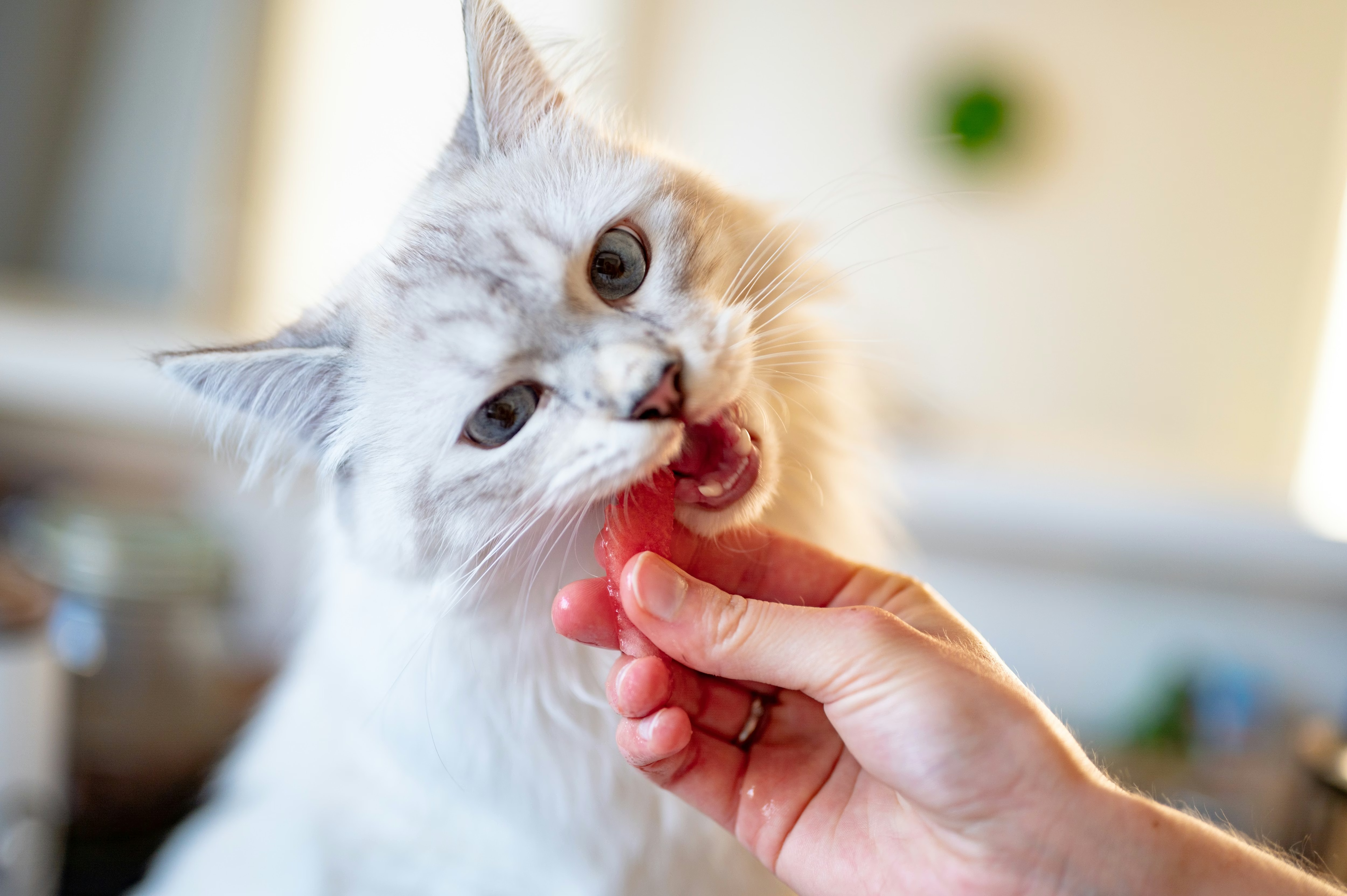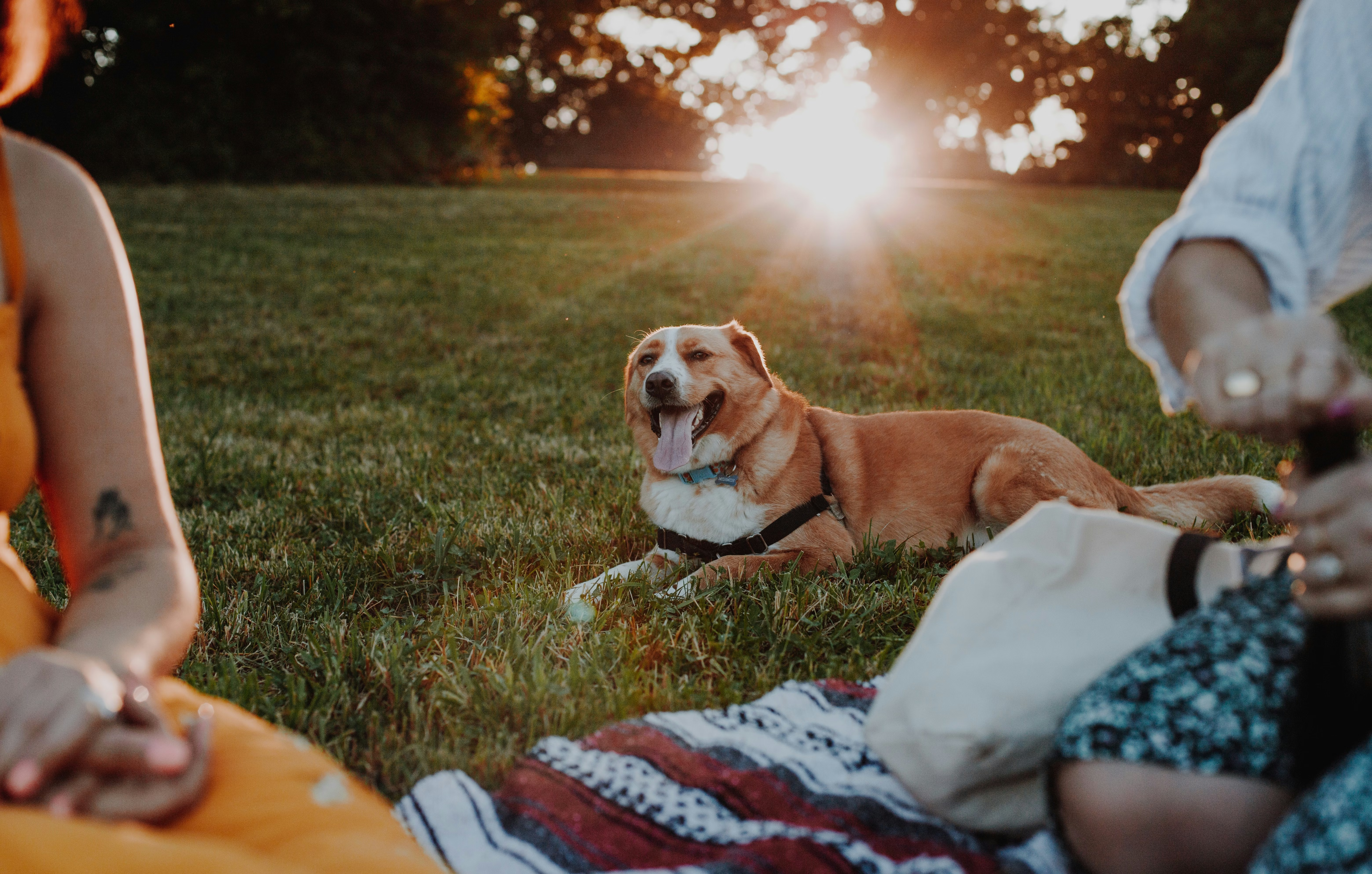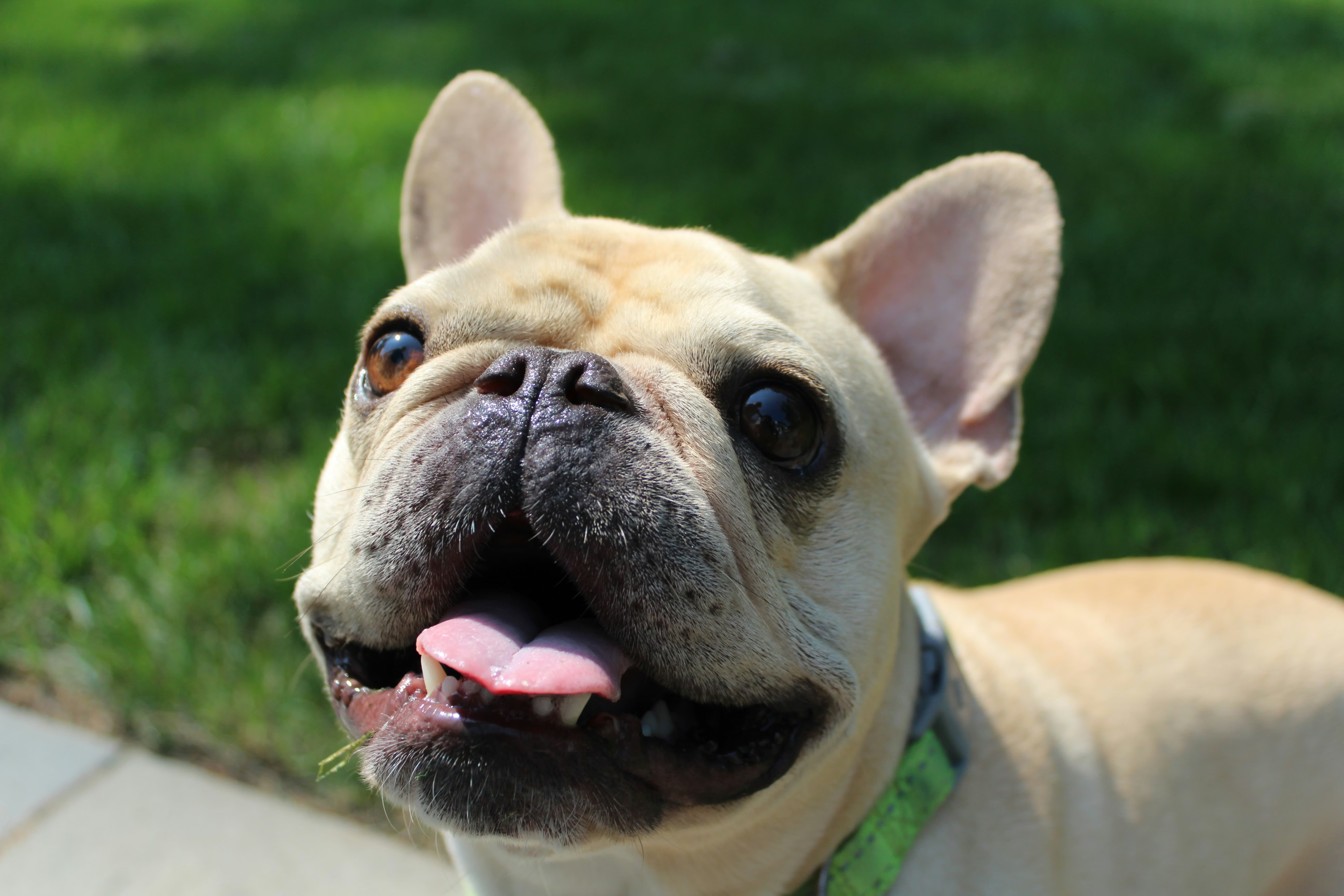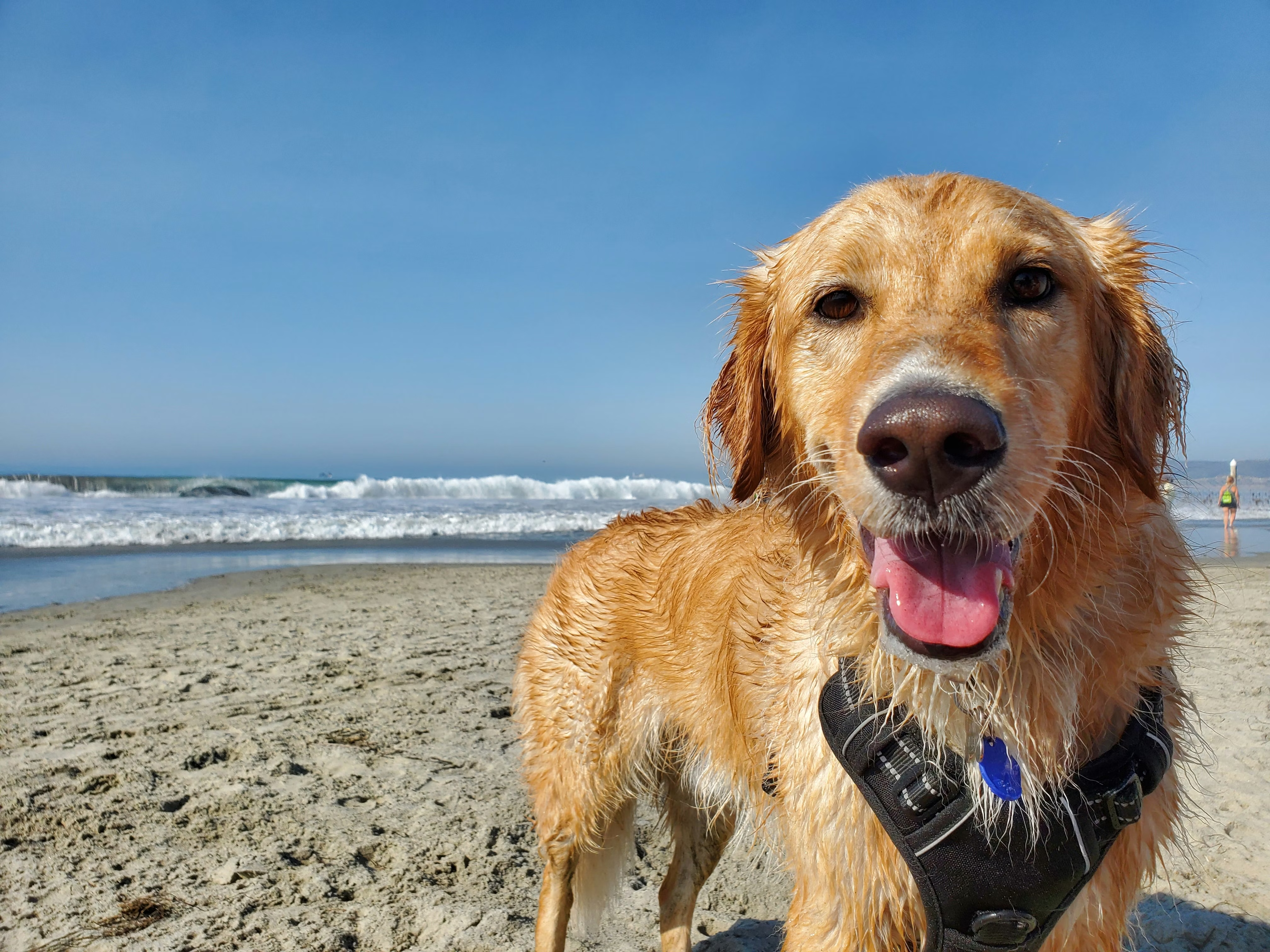Nothing beats gathering around the grill with family and friends for a summer cookout—especially when your pets get to join the fun. So when planning or attending your next backyard get-together, keep these tips in mind to ensure a safe event for your furry friends.
BBQ safety 101
Grills can be tempting to hungry dogs and curious cats. To keep pets safe, keep them away from the grill while in use— including the time it takes for the grill to heat up and cool down). It only takes a second for a pet to jump up on a hot grill, so vigilance is key to avoiding burnt paws or other injuries. You’ll also want to clean the grill thoroughly after each use. Any scraps or drippings left behind can entice your pets (and neighborhood animals).
You’ll also want to ensure the yard is safe and secure. You may consider putting a sign on the gate to remind guests to shut it tight as they enter or leave. If the event is at your home, you’ll already know if the yard is fully fenced. But if you’re at someone else’s home, check for any places your pet could escape. If the yard is not fully enclosed, keeping your pet on a leash is a good idea.
If you’re having a summer BBQ, chances are it’s pretty warm out. Reduce the risk of heat exhaustion by giving your pet a shady place to relax and access to plenty of water. And if the temps climb too high, take your dog or cat indoors where they can cool off in the air-conditioned house or lounge near a fan.
Foods to watch out for
The best thing about a cookout is the tasty food—and your pet may be just as excited as you are to try it all. However, not all people-food is suitable for pets. A resource such as Pet Poison Helpline is great for checking the safety of individual food items. In the meantime, here are some of the common foods your pet should avoid.
- Greasy, fatty foods, which can cause pancreatitis or other stomach issues
- Raw fish and meats (and the packaging they came in)
- Bones from meat, fish, or chicken, which can be a choking hazard or damage your pet’s mouth, throat, or stomach
- Onions, garlic, shallots, leeks, and chives—all of which are toxic to dogs and cats
- Corn cobs are low risk for cats, but dogs may try to swallow large pieces of them, which can potentially cause an intestinal blockage.
- Grapes and raisins.
- Desserts in general, as chocolate, cocoa, caffeine from coffee-flavored desserts, and many nuts can all be toxic.
- Any products containing xylitol (an artificial sweetener), which is found in lots of common sugar-free foods including peanut butter, baked goods, beverages, sauces, condiments, and dressings.
- Salty and sugary snacks can cause anything from stomach issues to severe toxicity, depending on the food item and the amount consumed.
- Alcohol can cause intoxication in pets just as it does people—and in much smaller quantities.
In addition to food, keep pets away from trash cans. Tin foils, plastic wraps, and disposable containers used to store food can all be tempting (and dangerous) to pets.

Pet-safe foods
If you want to give your dog or cat a special people-food treat during the BBQ, there are plenty of safe options to choose from (as long as you give them only occasionally and in small quantities). Following are a few of our favorite suggestions.
- Cooked, boneless, lean meat or fish
- Carrots, green beans, and cucumbers
- Blueberries, apple slices (seeds removed), cantaloupe, and bananas
- Plain air-popped popcorn (avoid unpopped or partially popped kernels)
- Cheese
By following these suggestions, you’ll help ensure a safe day for your furry friend, and a fun day for all of you!















